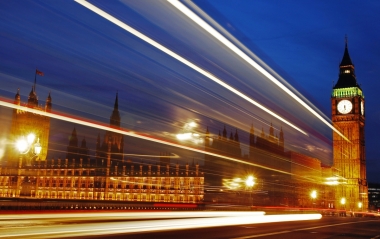Christian Today report– The Times newspaper has called for the Church of England to stay out of politics after the publication of the bishops’ letter urging involvement in this May’s General Election, saying that’s not what bishops are for.
While at 52 pages I’m not sure I’d describe it as a letter, this is just the sort of thing church leaders should be doing.
I don’t agree with everything the bishops have to say, but then I don’t necessarily agree with everything those in my own church or even my family think about politics. Where I am passionately in tune with my Anglican brothers, and now sister, is that politics is too important to be left to the politicians. It is something where we all have to get involved. And we need to lift our eyes and recapture a vision for what our communities and our country can become.
Too often talk of how evangelical Christians engage in politics suffers from importing assumptions from the United States. It conjures up images of everyone voting for the same party based on a small number of issues of key concern. A couple of years ago the Theos theological think-tank looked into this and found that the prospect of a religious right emerging in the UK was pretty slim, despite what the media might sometimes want to suggest. In fact, it concluded: “While it is not impossible that a co-ordinated religious right evolves in Britain, it hasn’t done so to date and would, if it did materialise, look rather different from the US version.”
The response to the bishops’ letter is certainly not suggesting that the Church of England is turning into some sort of religious right. In fact, it’s been accused of being too left wing and has promptly been slammed by various Conservative politicians (some of whom confessed to not having read it).
Church services in the UK and the US might look similar, we might sing the same worship songs and read the same authors, but when it comes to politics we’re really very different. New research out from the Evangelical Alliance this week shows that UK Christians don’t just vote for one party, and the issues they care about are very distinctive to the general population.
The Faith in politics? report shows that evangelical Christians are doing exactly what the bishops are calling for: they are engaging in politics. Four out of five are certain to vote in May and many, many more than the national average have contacted their MPs, joined a campaign or got involved in a political party. It’s clear we’re taking up the call to show up and engage in politics, and that’s a good thing because politics is in need of all the help it can get. Half of evangelicals are less likely to believe what politicians say than five years ago and even more have less trust in the government. It might be surprising given these findings that interest in politics and an awareness of how to get involved has increased.
The hot-button issues for evangelicals in this country cover some ground that would be familiar in the States, and some that would probably be alien. When it comes to deciding how to vote, protecting religious liberty comes at the top but next up is tackling poverty in the UK, and then come human trafficking, same-sex marriage and euthanasia rounding off the top five. Even when evangelicals agree on the issues that matter – and well over two thirds say protecting religious liberty would affect how they vote – they don’t back the same party, with evangelicals more or less reflecting the voting intention of the national population.
How politics and church mix is also different from across the Atlantic. Only two per cent had been explicitly encouraged to vote a certain way by their church leadership, and fewer than a third had heard direction from the pulpit on a particular policy issue. I don’t think it’s the place of pastors to give political backing to parties or candidates, but avoiding this shouldn’t mean silence in the sanctuary. The Christian faith is not restricted to the private ordering of beliefs or behaviours: it’s about the world we live in and the society we want our children and grandchildren to inherit. And that means politics is unavoidable.
I’m looking forward to more church leaders wading into politics over the coming months. There are issues Christians care about that need to be heard and congregations are determined to turn their disillusionment into political action. Instead of trying to dismiss their concerns, politicians have a chance to win their votes.
Source: Christian Today



